Can talcum powder give you cancer?
Johnson & Johnson to pay $4.7bn damages in ovarian cancer lawsuit
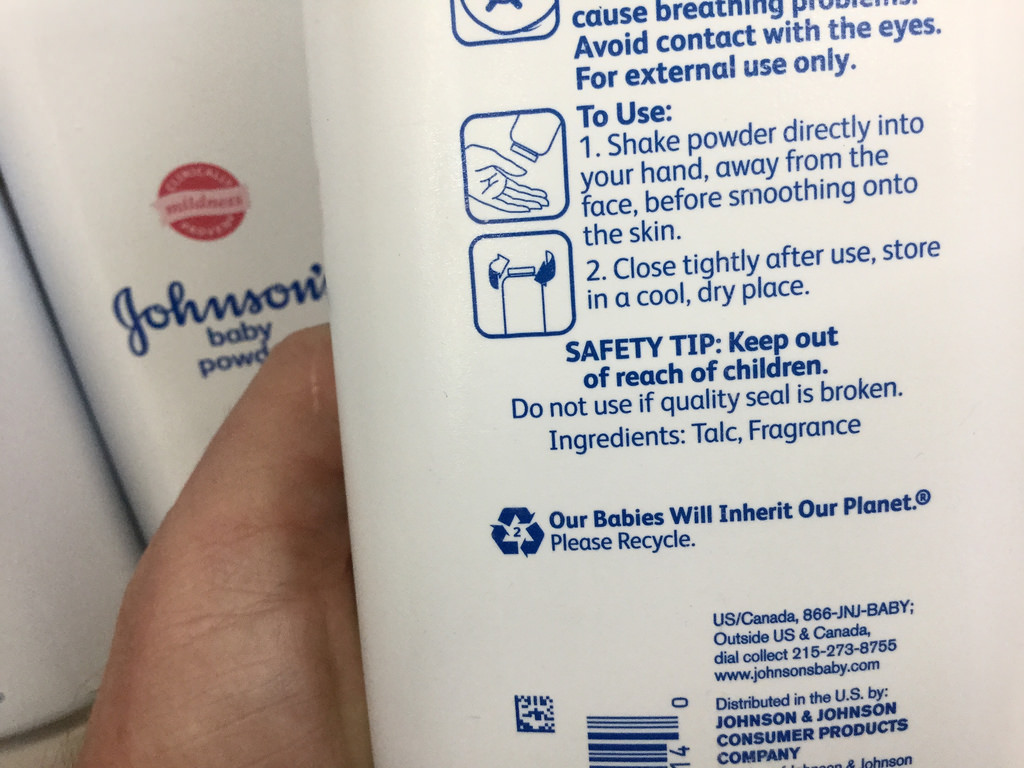
A free daily email with the biggest news stories of the day – and the best features from TheWeek.com
You are now subscribed
Your newsletter sign-up was successful
Johnson & Johnson has been ordered to pay $4.7bn (£3.6bn) in damages to 22 women who claim that asbestos in the pharmaceutical giant’s talcum powder products caused them to develop ovarian cancer.
Lawyers for the women and their families alleged that the company “knew its talc was contaminated with asbestos since the 1970s but failed to warn consumers about the risks”, says the BBC.
The jury at the trial, in the US state of Missouri, heard that of the women represented in this case, six have died from ovarian cancer.
The Week
Escape your echo chamber. Get the facts behind the news, plus analysis from multiple perspectives.

Sign up for The Week's Free Newsletters
From our morning news briefing to a weekly Good News Newsletter, get the best of The Week delivered directly to your inbox.
From our morning news briefing to a weekly Good News Newsletter, get the best of The Week delivered directly to your inbox.
But what does the science say about the apparent link?
What is talcum powder?
Talcum powder is made from talc, a mineral made up of the elements including magnesium and silicon. Because of its moisture-absorbing qualities, it is commonly found in “cosmetic products such as baby powder and adult body and facial powders, as well as in a number of other consumer products”, says the American Cancer Society.
In its natural form, some talc contains asbestos - a substance known to cause cancers when ingested. This has led to concerns that women who apply talcum powder regularly to their genital area may have an increased risk of developing ovarian cancer.
A free daily email with the biggest news stories of the day – and the best features from TheWeek.com
What does the evidence say?
In a recent study, researchers looked at data on more than 2,000 women with ovarian cancer and compared their use of talc to a control group of women without the disease. “Overall, they found a 33% increase in the risk of ovarian cancer with genital talc use,” says the NHS website.
However, the site adds, these risk estimates were based on a small sample of women and the participants self-reported their use of talc, so the findings may not be reliable. These kinds of studies also cannot determine whether talc actually caused the cancer: a complex variety of lifestyle and genetic factors affect risk of developing the disease.
So is talcum powder safe to use?
The International Agency for Research on Cancer (IARC) classifies talc that contains asbestos as “carcinogenic to humans”, and perineal (genital) use of talc-based body powder as “possibly carcinogenic to humans”, according to the American Cancer Society website. This suggests that there may indeed be a link between the powder and ovarian cancer.
But is important to note that all talcum products used in homes in the UK and US have been asbestos-free since the 1970s. Furthermore, Cancer Research UK says there are “important weaknesses” in the studies that suggest women who used talc prior to then may have an increased risk of ovarian cancer.
However, to play it safe, medical experts recommend that only women use only plain, unscented soaps on the external genital area.
-
 James Van Der Beek obituary: fresh-faced Dawson’s Creek star
James Van Der Beek obituary: fresh-faced Dawson’s Creek starIn The Spotlight Van Der Beek fronted one of the most successful teen dramas of the 90s – but his Dawson fame proved a double-edged sword
-
 Is Andrew’s arrest the end for the monarchy?
Is Andrew’s arrest the end for the monarchy?Today's Big Question The King has distanced the Royal Family from his disgraced brother but a ‘fit of revolutionary disgust’ could still wipe them out
-
 Quiz of The Week: 14 – 20 February
Quiz of The Week: 14 – 20 FebruaryQuiz Have you been paying attention to The Week’s news?
-
 The truth about vitamin supplements
The truth about vitamin supplementsThe Explainer UK industry worth £559 million but scientific evidence of health benefits is ‘complicated’
-
 Covid-19 mRNA vaccines could help fight cancer
Covid-19 mRNA vaccines could help fight cancerUnder the radar They boost the immune system
-
 Deadly fungus tied to a pharaoh's tomb may help fight cancer
Deadly fungus tied to a pharaoh's tomb may help fight cancerUnder the radar A once fearsome curse could be a blessing
-
 'Poo pills' and the war on superbugs
'Poo pills' and the war on superbugsThe Explainer Antimicrobial resistance is causing millions of deaths. Could a faeces-filled pill change all that?
-
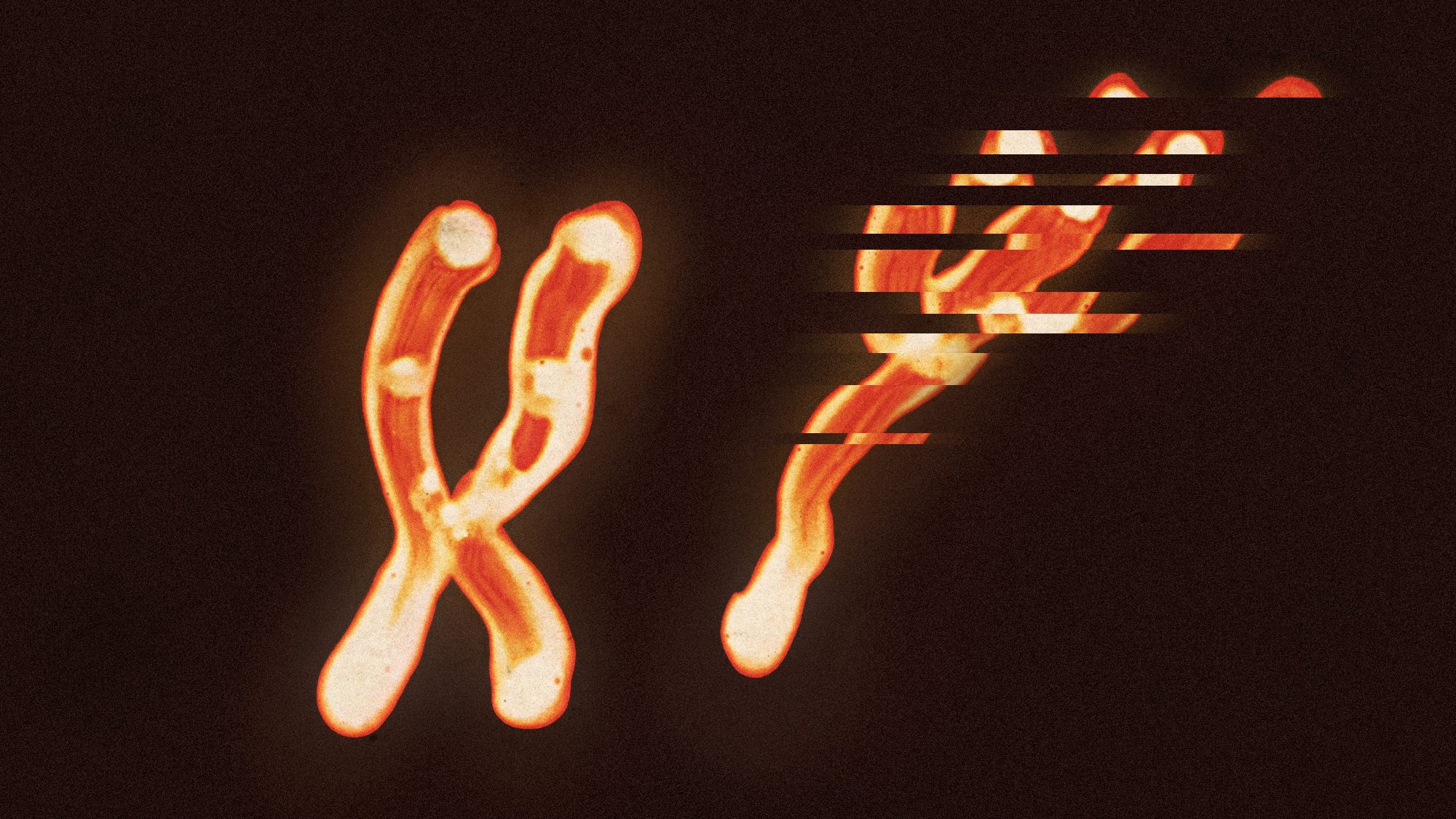 The Y chromosome degrades over time. And men's health is paying for it
The Y chromosome degrades over time. And men's health is paying for itUnder the radar The chromosome loss is linked to cancer and Alzheimer's
-
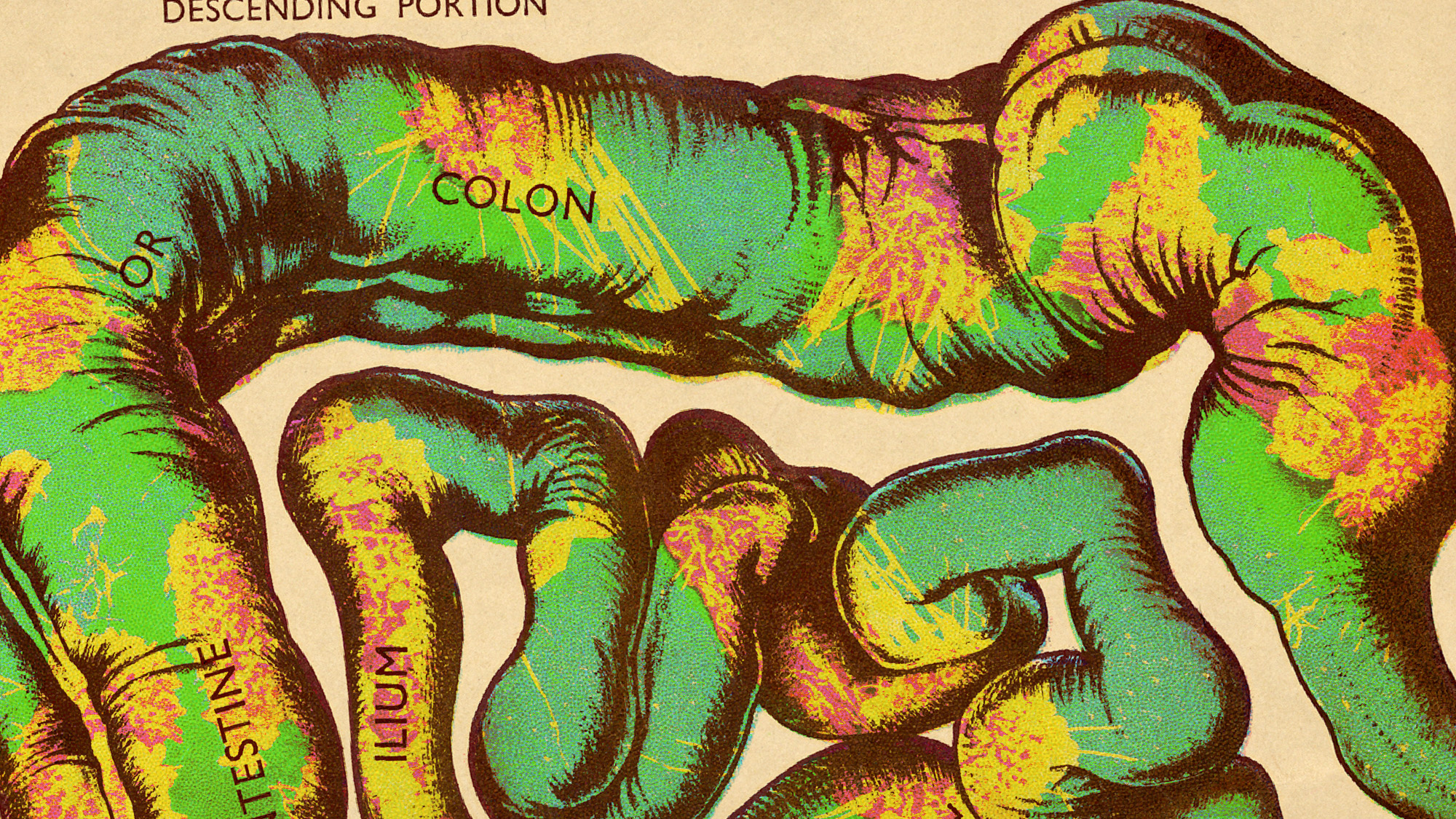 A bacterial toxin could be contributing to the colorectal cancer rise in young people
A bacterial toxin could be contributing to the colorectal cancer rise in young peopleUnder the radar Most exposure occurs in childhood
-
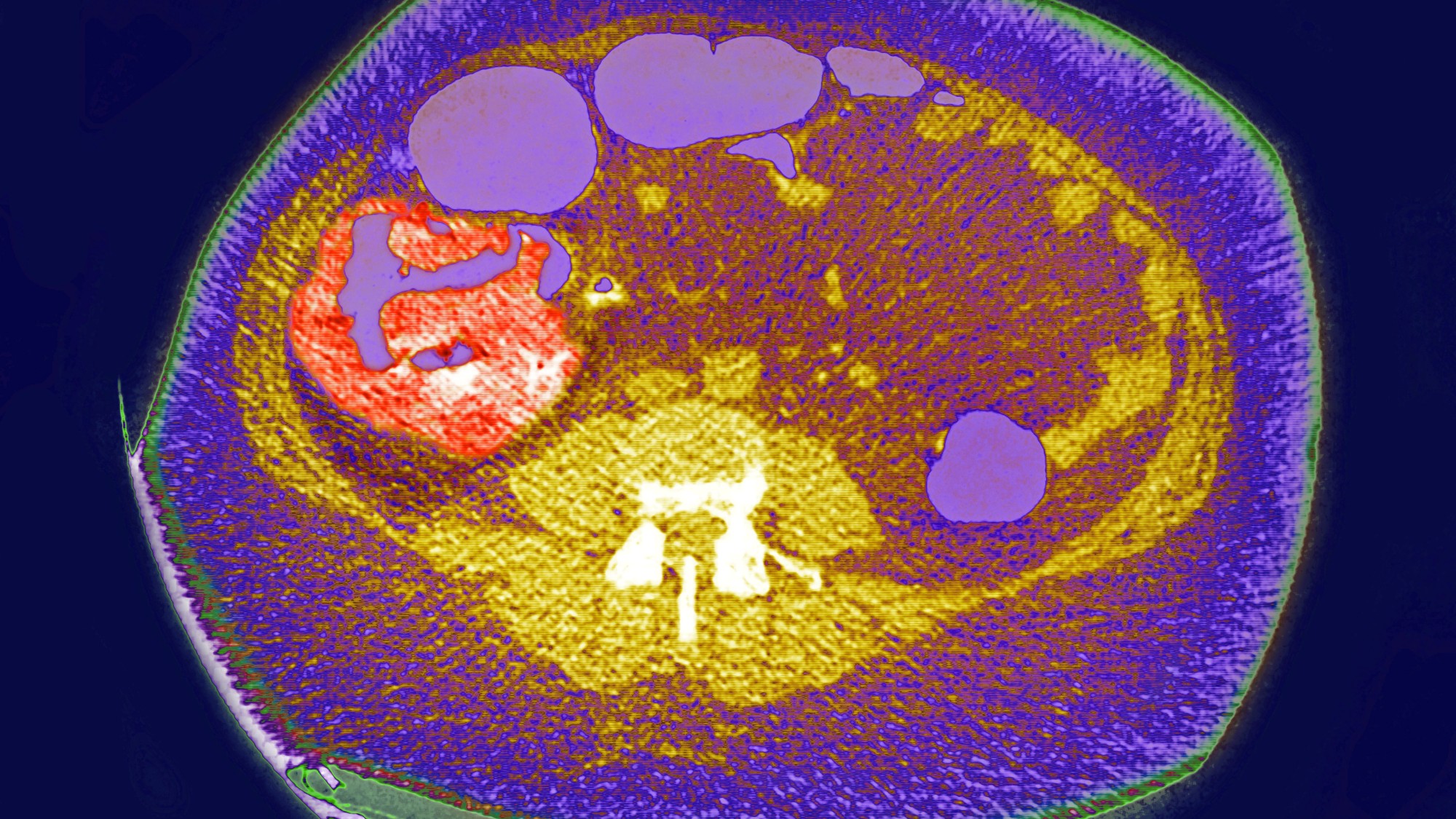 Why are more young people getting bowel cancer?
Why are more young people getting bowel cancer?The Explainer Alarming rise in bowel-cancer diagnoses in under-50s is puzzling scientists
-
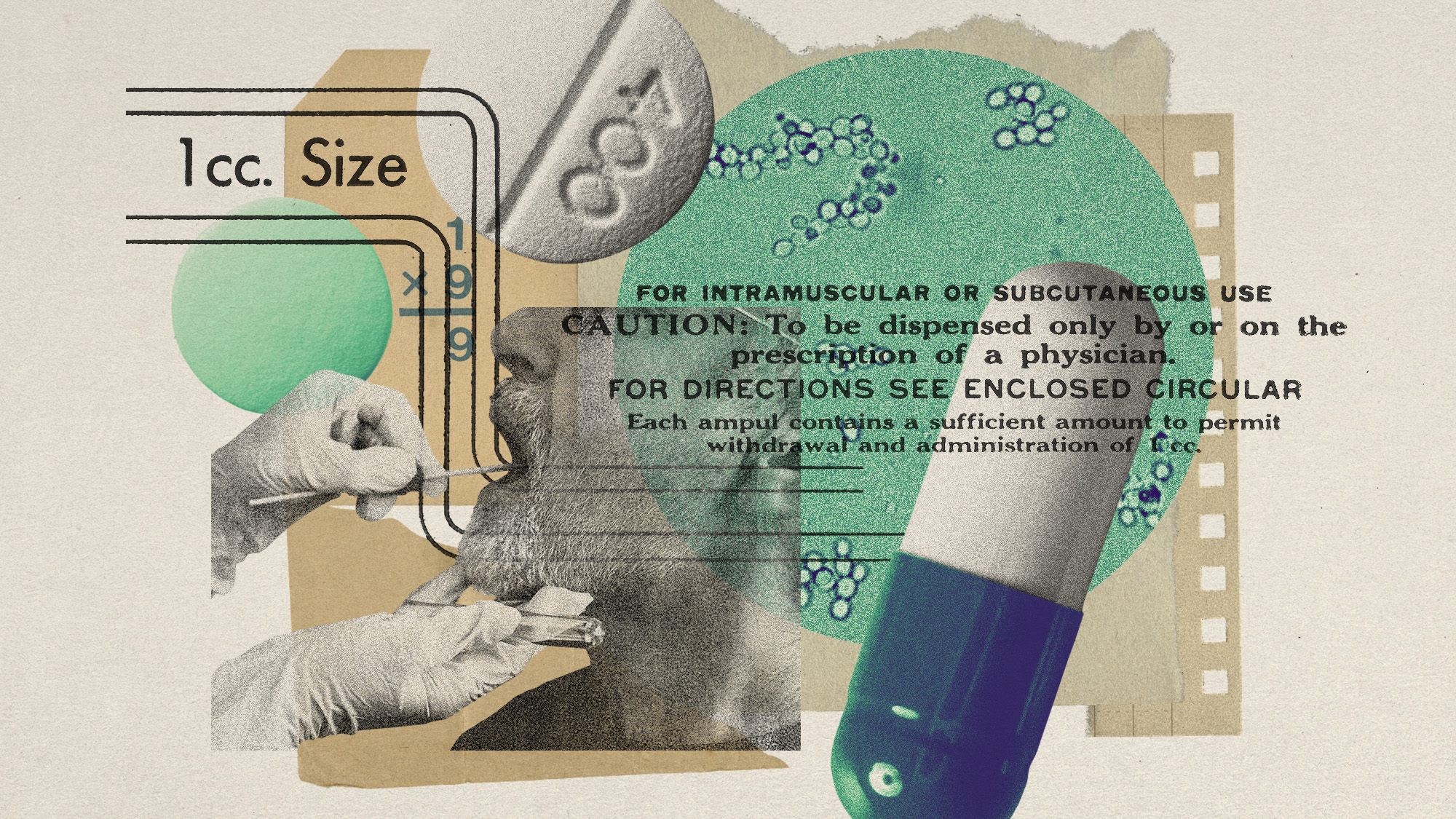 Five medical breakthroughs of 2024
Five medical breakthroughs of 2024The Explainer The year's new discoveries for health conditions that affect millions